Unveiling the Remarkable Health Benefits of Sprouts
Sprouts, those tiny but mighty plants bursting with vitality, are more than just a garnish—they're a nutritional powerhouse with a host of benefits for overall health and wellness. In this comprehensive guide, we'll delve into the incredible health advantages of incorporating sprouts into your diet and explore how these humble young plants can contribute to a healthier lifestyle.
What Exactly Are Sprouts?
Sprouts are the tender young shoots that emerge from seeds, grains, or legumes when they begin to germinate. This germination process unlocks a wealth of nutrients and enzymes, transforming these dormant seeds into nutrient-dense powerhouses. Common varieties of sprouts include mung bean sprouts, alfalfa sprouts, broccoli sprouts, brussel sprouts and radish sprouts, each offering a unique blend of nutrients and health-promoting properties.
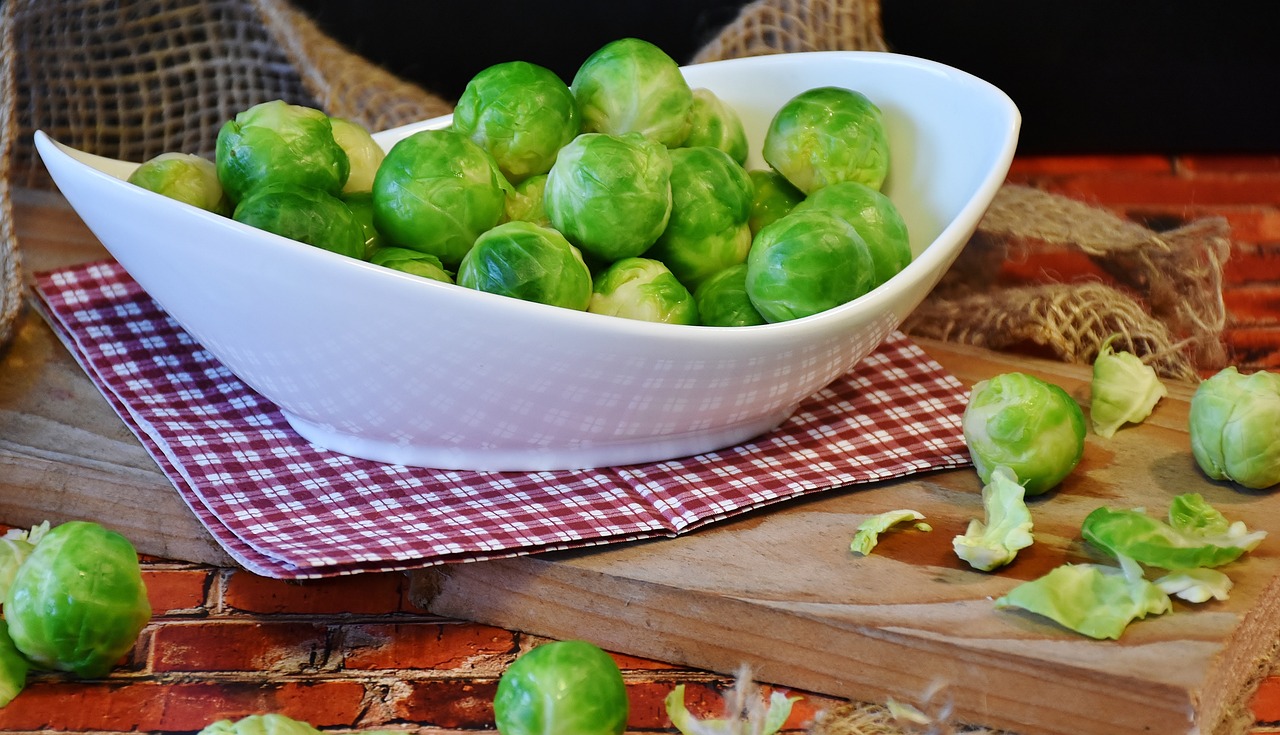
The Nutritional Powerhouse of Sprouts
Sprouts are celebrated for their impressive nutritional profile, making them a valuable addition to any diet. Despite their small size, sprouts are loaded with essential vitamins, minerals, antioxidants, and enzymes. Here's a glimpse into the key nutrients found in sprouts:
Vitamin C: Vitamin C plays a crucial role in enhancing immune function by supporting the body's ability to fight infections. It also contributes to skin health, aiding in collagen production and protecting against oxidative damage.
Vitamin K: Essential for blood clotting, vitamin K ensures that wounds heal properly and helps maintain bone health by supporting calcium metabolism.
Folate: Folate is essential for cell division and growth, particularly during pregnancy. Adequate folate intake helps prevent neural tube defects in developing fetuses.
Iron: Iron is vital for the transport of oxygen in the blood, supporting energy production and overall cellular function.
Magnesium: This mineral supports muscle function, including muscle contraction and relaxation. It also plays a role in energy production and helps regulate blood pressure.
Potassium: Important for maintaining fluid balance and regulating blood pressure, potassium supports heart health and overall cardiovascular function.
Fiber: Dietary fiber is essential for promoting digestive health by aiding in regular bowel movements and supporting a healthy gut microbiome. It also helps lower cholesterol levels and stabilize blood sugar levels.
These nutrients are essential for overall health and well-being, highlighting the importance of incorporating a variety of nutrient-rich foods into your diet.
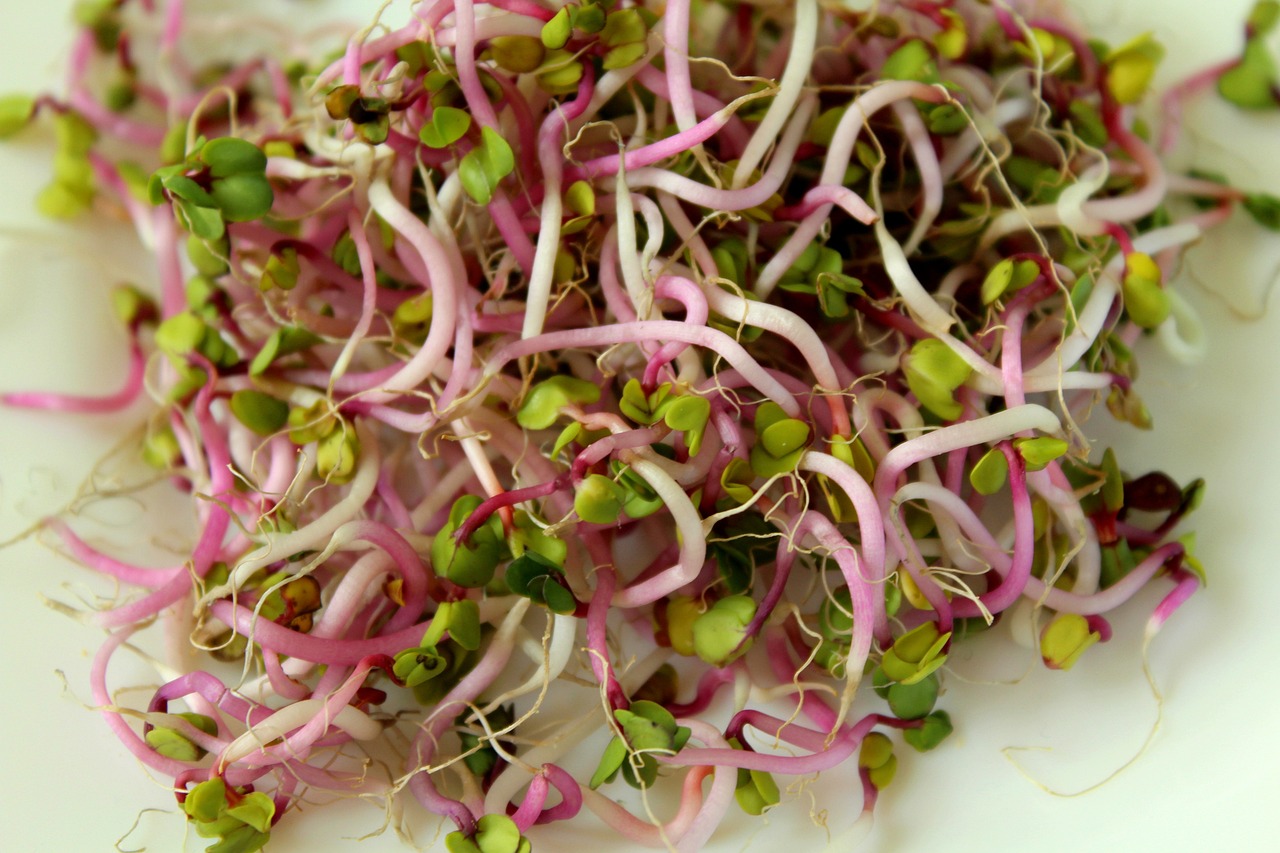
Health Benefits of Incorporating Sprouts
Adding sprouts to your diet can have a profound impact on your health. Here are some of the remarkable benefits associated with consuming sprouts regularly:
1. Enhanced Digestive Health: Sprouts are rich in dietary fiber, which promotes healthy digestion by supporting regular bowel movements and preventing constipation.
2. Improved Nutrient Absorption: The germination process increases the availability of certain nutrients, such as vitamin C and antioxidants, making them more bioavailable and easier for the body to absorb.
3. Immune System Support: With their high vitamin C content, sprouts can strengthen the immune system, helping the body defend against infections and illnesses.
4. Detoxification: Sprouts contain antioxidants that help neutralize harmful free radicals, supporting the body's natural detoxification processes.
5. Weight Management: Low in calories but high in nutrients, sprouts can aid in weight management by providing essential nutrients without excess calories.
6. Heart Health: Potassium and magnesium in sprouts contribute to heart health by regulating blood pressure and supporting cardiovascular function.
7. Anticancer Properties: Certain sprouts, like broccoli sprouts, contain compounds such as sulforaphane, which have shown potential anticancer properties in studies.
Ways to Enjoy Sprouts in Your Diet
Incorporating sprouts into your meals is easy and versatile. Here are some delicious ways to enjoy sprouts:
In Salads: Enhance the crunch and nutritional content of your salads by adding sprouts as a fresh and flavorful ingredient.
In Sandwiches and Wraps: Incorporate sprouts as a filling or topping in sandwiches and wraps to elevate their texture and nutritional profile.
In Stir-Fries: Boost the flavor and nutrition of stir-fried dishes by including sprouts along with other vegetables and proteins.
In Smoothies: Blend sprouts into smoothies to create a nutrient-rich beverage that's both refreshing and packed with essential vitamins and minerals.
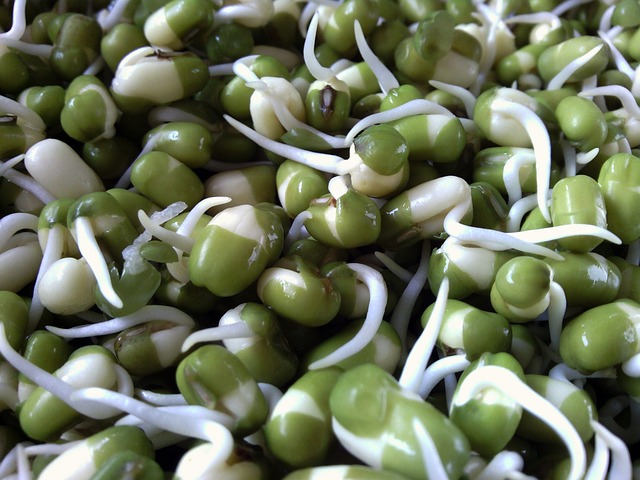
Safety Tips for Consuming Sprouts
While sprouts offer incredible health benefits, it's important to handle and consume them safely to minimize the risk of foodborne illness. Follow these tips when buying and preparing sprouts:
Select Fresh Sprouts: Opt for sprouts that appear fresh and have a crisp texture, avoiding any that seem wilted or discolored.
Thoroughly Rinse: Before consuming, rinse sprouts under running water to remove any dirt, bacteria, or potential contaminants.
Store Properly: Keep sprouts refrigerated in a sealed container or plastic bag to maintain freshness. Use them within a few days to prevent spoilage and ensure optimal taste and texture.
Conclusion: Embracing the Nutritional Potential of Sprouts
Incorporating sprouts into your diet is a simple and effective way to enhance your overall health and well-being. Whether you're looking to support digestion, boost immunity, or promote heart health, sprouts can be a valuable addition to your meals. Experiment with different types of sprouts to discover your favorites and enjoy the nutritional benefits they have to offer.
Before making significant changes to your diet, consult with a healthcare professional, especially if you have specific health concerns or conditions. By incorporating sprouts into your meals regularly, you can harness the nutritional power of these tiny plants and embark on a journey towards a healthier lifestyle.
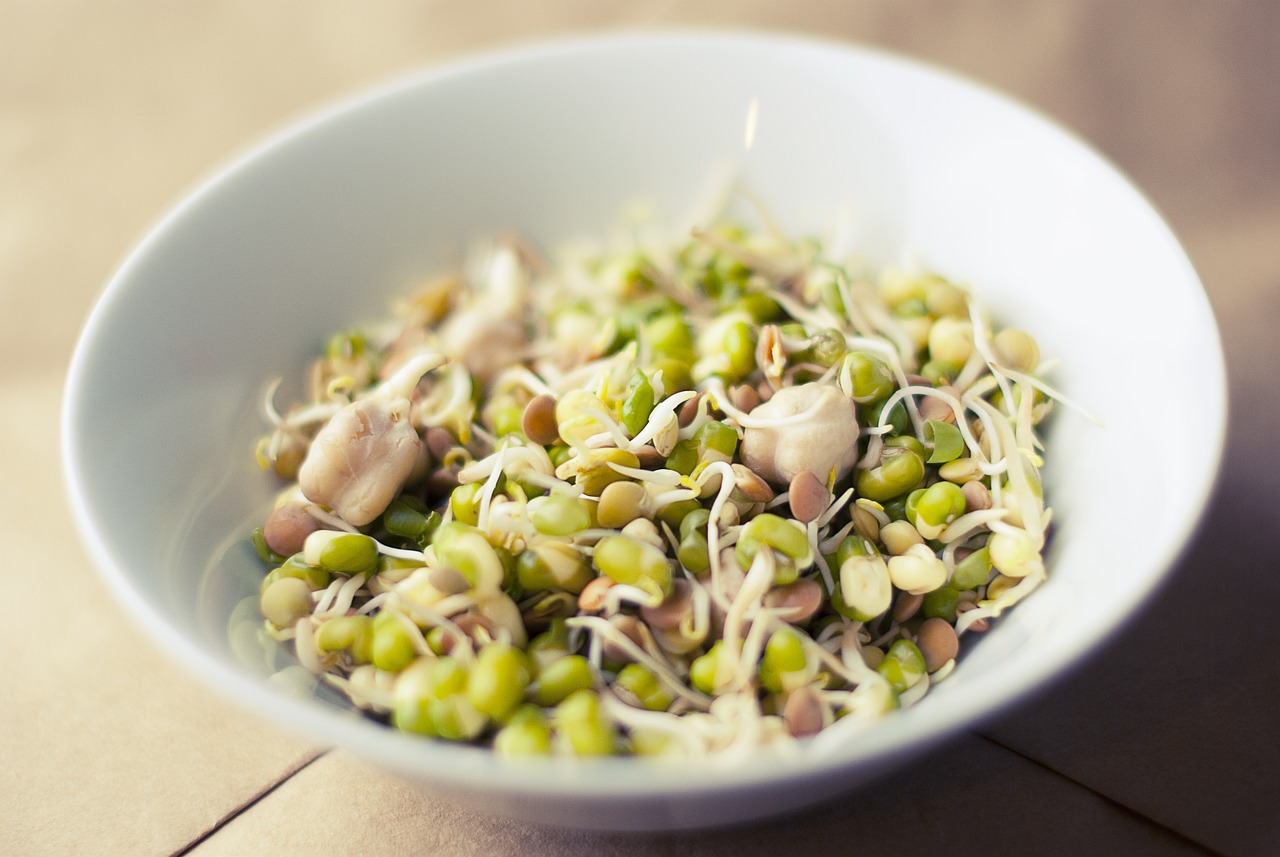
Frequently Asked Questions (FAQ) About Remarkable Health Benefits of Sprouts
1. What are sprouts, and why are they beneficial for health?
Sprouts are young plants that emerge from seeds, grains, or legumes during the germination process. They are packed with essential nutrients, including vitamins, minerals, antioxidants, and enzymes, making them highly beneficial for overall health and wellness.
2. How do sprouts contribute to digestive health?
Sprouts are rich in dietary fiber, which supports healthy digestion by promoting regular bowel movements and preventing constipation. The fiber content also nourishes the beneficial bacteria in the gut, supporting a healthy gut microbiome.
3. Can sprouts help boost the immune system?
Yes, sprouts are a good source of vitamin C, which is essential for a healthy immune system. Vitamin C supports the body's immune system, helping to fortify defenses against infections and illnesses.
4. Do sprouts aid in weight management?
Sprouts are low in calories but high in nutrients, making them a great addition to a weight management plan. They provide essential nutrients without adding excess calories, helping to promote satiety and support overall health.
5. How can I incorporate sprouts into my diet?
There are many delicious ways to enjoy sprouts:
- Add them to salads for extra crunch and nutrition.
- Use them as a filling or topping for sandwiches and wraps.
- Include them in stir-fried dishes for added flavor and texture.
- Mix them into smoothies to create a healthy and nutrient-rich drink.
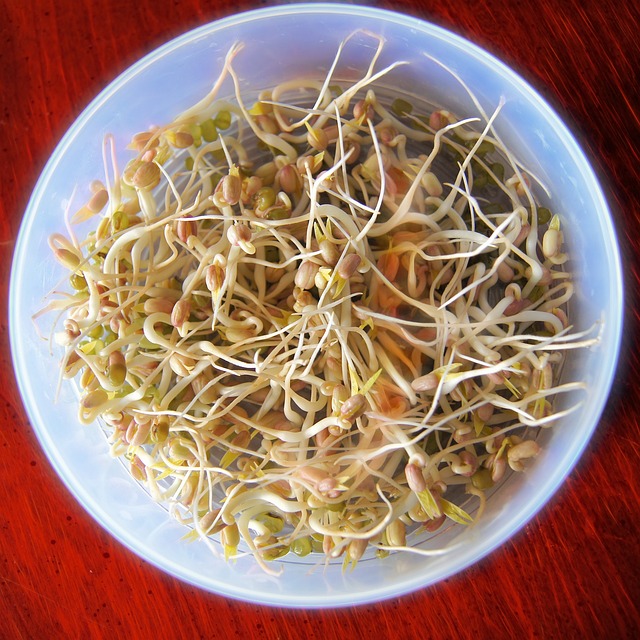
6. Are there any safety considerations when consuming sprouts?
While sprouts offer numerous health benefits, it's important to handle and consume them safely to reduce the risk of foodborne illness. Always choose fresh sprouts, rinse them thoroughly under running water before eating, and store them properly in the refrigerator.
7. Which types of sprouts are particularly beneficial for health?
Different types of sprouts offer unique health benefits. For example:
- Broccoli sprouts contain sulforaphane, a compound with potential anticancer properties.
- Alfalfa sprouts are rich in vitamin K, which supports bone health and blood clotting.
- Mung bean sprouts are high in folate, iron, and potassium, contributing to overall well-being.
8. Can sprouts be eaten raw or cooked?
Sprouts can be consumed raw or lightly cooked. Eating them raw preserves their nutritional content, while cooking can enhance their flavor and texture in various dishes.
9. How long do sprouts last, and how should they be stored?
Fresh sprouts should be consumed within a few days of purchase to ensure freshness and safety. Store them in the refrigerator in a sealed container or plastic bag to maintain their crispness and prevent spoilage.
10. Are sprouts suitable for everyone to consume?
While sprouts are generally safe for most people when handled and consumed properly, individuals with weakened immune systems, pregnant women, and young children should exercise caution due to the risk of foodborne illness associated with sprouts.
Powered by Froala Editor





Leave a Reply